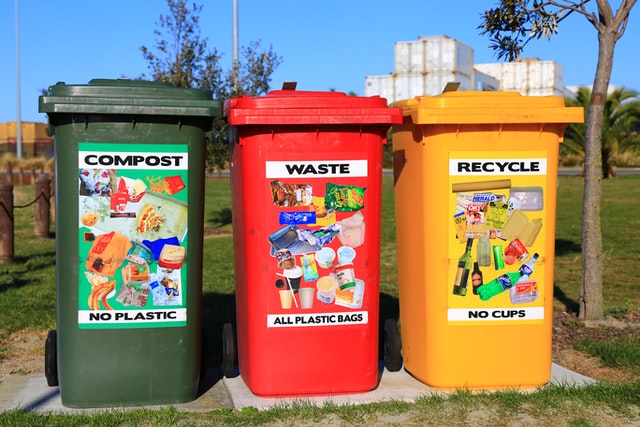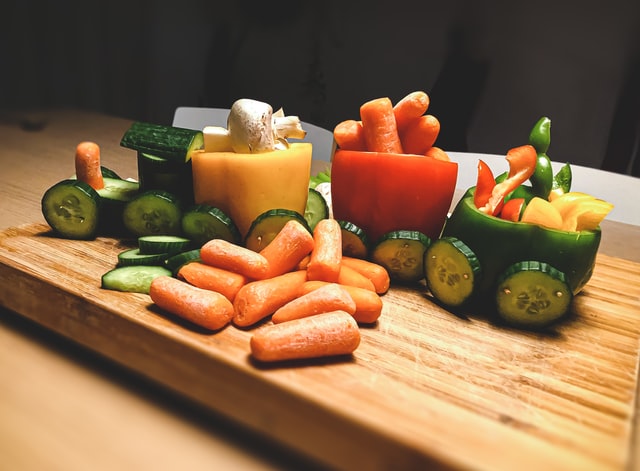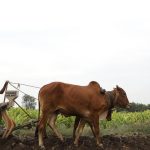Because of its lower environmental impact compared to industrial farming, organic farming is increasingly showing up on the agenda for a more sustainable world. A new study suggests its nitrogen – a fundamental nutrient that fuels agricultural production – limitations make it unsuitable to feed the world by 2050.
Can Organic Farming Feed the Entire world? Under Today’s Premises, It Cannot.
One of the study’s first sentences is that:
“Organic farming has lower yields than conventional agriculture and requires the introduction of nitrogen (N) fixing legumes in crop rotations.“
It was with this motto in mind a team of scientists from Portugal and Austria developed a study that concluded it will not be possible to feed all of humanity in 2050 (9-9.5 billion people) just by switching to organic farming as we practice it today.
The work was published in the scientific journal Global Environmental Change, highlighting that organic farming, which prohibits the use of synthetic fertilizers, cannot provide enough nitrogen for crops to be viable globally.
“The results clearly demonstrate that the complete transition to organic production in 2050, as presently practiced, leads to a lack of nutrients to produce the food needed to feed the world’s population regardless of dietary changes.”
Tiago Morais, one of study’s researchers
One reason is that organic farming has a lower productivity per yield, meaning it needs more space to produce the same amount of food compared to non-organic farming methods.
The study also assumed there would be no additional deforestation – which is very important for the climate agenda – and that, therefore, there won’t be enough area for (today’s) organic farming methods if they were to replace industrial farming practices.
Can Organic Farming Become Viable Until 2050?

In the search for solutions to make organic agriculture viable by 2050 – considering its limitations of needing a larger area and its insufficient nitrogen production – the study highlights the need for betting on different strategies.
One solution is to increase the efficiency of the food given to animals or to make compost out of solid urban waste and then use it to fertilize the land.
Another solution would be to increase – via food engineering – the ability of legumes to obtain nitrogen from the atmosphere. This would mean making all legumes fix nitrogen at the same rate as the best legumes do.
Optimizing crop rotations, reducing food waste, decarbonizing the process (Haber-Bosch) by which we produce synthetic fertilizer, or using biogas from animal waste are other solutions to organic farming that need to be further explored and improved.
“Combining these solutions, we could have an organic agriculture that has enough nitrogen and does not need to create deforestation to have enough area to feed humanity in 2050,” said Tiago Domingos, one of the study’s main researchers.
From an Organic Farming Perspective, What Is the Most Eco-Friendly Diet?

As we’ve seen, the model used in the study analyzed a series of solutions to feed humanity in 2050 – considering both organic and conventional farming. But it also explores the question of what would be the most sustainable diet according to both types of farming.
From the point of view of conventional farming, the least impactful diet is the vegan one where no animal products are used – nothing new so far.
However, a 100% move to organic farming would hardly be compatible with a purely vegan diet.
Why?
Because it is very important to have a “significant” animal component in the agricultural system since they make nitrogen available to the agricultural systems through manure, Tiago Domingos explained.
A Conclusion About Today’s Organic Farming Method and Its Advantages
The study’s findings reveal the environmental sustainability of today’s organic farming will have to go through different steps so that production systems can be improved.
At its core, the path to making organic farming sustainable will need plenty of innovation and the “help” of cattle and other farm animals.
Without these innovations, new processes, and greater efficiency in the ones already used, it won’t be possible to feed all of humanity in 2050 by betting only on today’s organic farming methods.
[Photos by Nareeta Martin, Sigmund and amol sonar on Unsplash]

